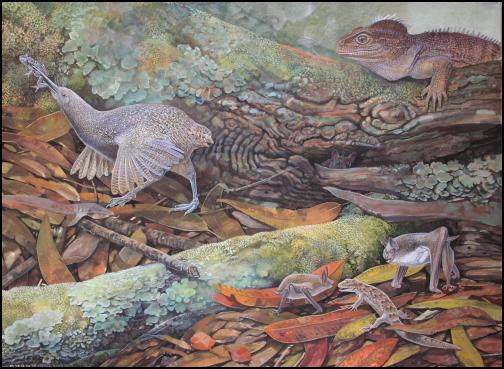Is New Zealand’s national bird about to go the way of Phar Lapp, Crowded House and pavlova? The Aussies are almost claiming the Kiwi, but not quite.

New research suggests that the Kiwi is not a dwarf version of the Moa, as some theories suggest, but in fact shares a common ancestor with the emu which may have flown to New Zealand from Australia.
Finders University researcher Dr Trevor Worthy, (AKA Dr Moa; himself a New Zealander now claimed by Australia) discovered fossils of what is believed to be the Kiwi’s ancestor three years ago in St Bathans in Central Otago.
Earlier research from renowned evolutionary biologist Stephen Jay Gould had argued that the kiwi had derived from a common ancestor shared with the moa. But Dr Worthy’s analysis of the the St Bathans fossils, coupled with genetic data, suggests that the Kiwi’s ancestor was a tiny bird about one third of the size of a small kiwi today, and likely shared a common ancestor with the emu in Australia.
Dr Worthy said it was not uncommon for birds to “jump” from Australia to New Zealand, citing the Mallard duck, the little banded dotterel and the cattle egret as three species which regularly fly back and forth.
Speaking to the Guardian, Dr Worthy allayed concerns that Australia was claiming the Kiwi itself.
“The ancestor may have come from Australia, but it then developed into the kiwi,” he said. “It probably didn’t even look like a kiwi, or an emu. It probably looked more like a chicken.”
The research, undertaken in collaboration with Canterbury Museum and Te Papa, was recently published in Proceedings of the 8th International Meeting of the Society of Avian Paleontology and Evolution.
Media coverage of the research includes:
Newstalk ZB: Our national bird – could be of Australian extraction
Radio New Zealand: Kiwi ancestor a small Aussie bird?
Stuff: Kiwi ancestor ‘flew from Australia’
The Guardian: Kiwi bird could have Australian roots, says expert after fossil discovery
TVNZ News: Kiwi could have flown from Australia – researchers
Science Alert: Kiwi may have originated in Aus
Sciblogger Alison Campbell has also covered the research on Bio Blog.